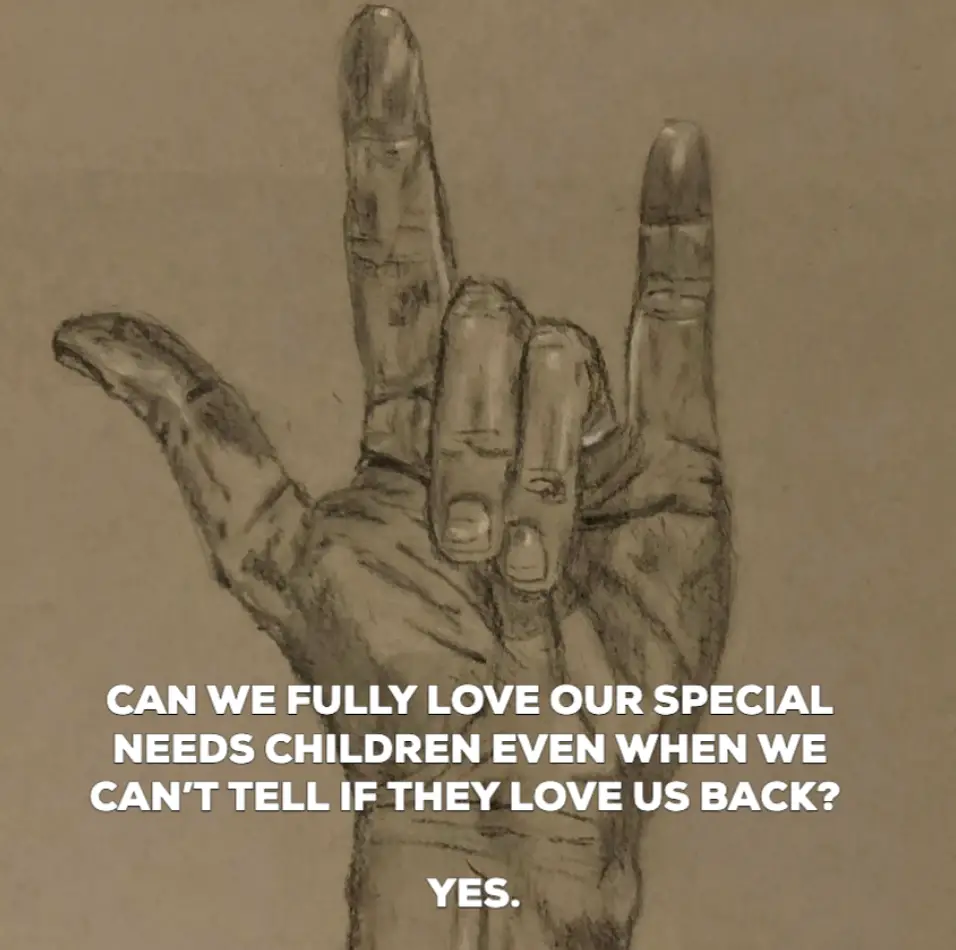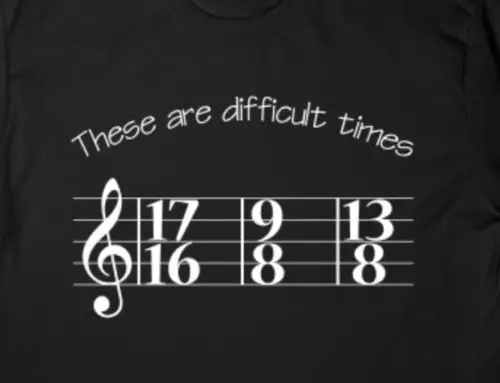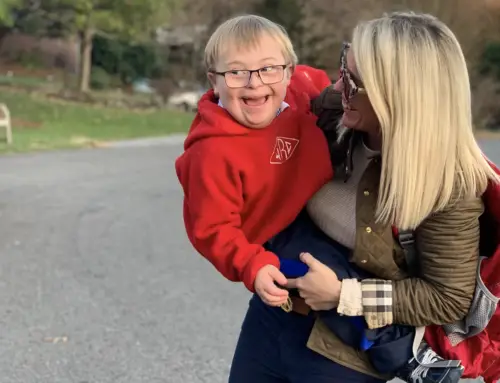I’d like to pose a bold question with a simple answer:
Can we fully love our special needs children even when we can’t tell if they love us back?
Yes.
(and by the way, they do love us back)
Perhaps that was an obvious answer to what could have felt like an insensitive question. Obviously, I love all my children. I don’t have favorites and while my special needs child often needs more care and attention, my love for him is immeasurable. In return, my kids tell me they love me and give me hugs and gifts and homemade cards on Mother’s Day and even on average days. It’s nice to feel loved back by them and to know that they appreciate me, though this does not affect how much I love them. One of my children, though, does not tell me he loves me. He does not give me homemade cards on Mother’s Day (though his teachers do). My expressions of love and affection toward him are commonly met with a head butt or a scowl. I don’t receive “thank yous,” or an “I’m sorrys” from him. Still, my love for him will always be at the heart of how I serve him and advocate for him throughout his entire life. There have been times that I have mourned the loss of the missing piece between us, which is the reciprocation of my love. There have also been times where I have felt strongly that he does love me and that I am the luckiest mom to be able to raise him.

How on earth am I able to feel that way when he’s often aggressive, expressionless, and always nonverbal? To explain this phenomenon, I’d like to steal an expression from a world famous author … “blink.”
Over the past year I’ve grown accustomed to the voice of Malcolm Gladwell. While washing dishes, folding clothes, sweeping, mopping, painting, biking, or completing any other mindless activity, I value the distraction of an audiobook. I’ve slowly been plowing through all Gladwell’s books, which he also narrates. While he has received some negative criticism for his writing and assumptions, especially among the autism community, I find his research interesting and some of his conclusions to be accurate. After the kids left for school on a normal weekday, I found myself cleaning up the breakfast whirlwind. Naturally, I turned on Gladwell’s Blink. Blink: The Power of Thinking Without Thinking, is largely about how and why split second decisions are made. Some of our split second conclusions about the world are spot on. For example, most of us think Tom Hanks is a nice guy just by listening to him talk. That’s most likely an accurate split second conclusion (I don’t actually know the guy, but still). He also offers examples of how split second decisions mislead us, like when Warren G. Harding was elected President of the U.S. because he was tall, handsome, and had a deep and comforting voice. In actuality he is still widely known as one of the worst Presidents to ever lead our country. While peeling sticky cheerios off the floor, I heard Gladwell explain the importance of reading facial cues and expressions, and that children learn this skill naturally at a very young age. “Not all children learn that,” I thought to myself… and then Gladwell validated my thoughts.
When we misjudge a situation, possibly due to anxiety or adrenalin, (he offers an example of a police officer after a high speed car chase) we lose our ability to read a person. Gladwell calls this particular mental state “temporary autism.” He shares an experience of a higher functioning autistic adult watching a movie. Instead of following the characters’ facial expressions as the plot unfolds during a pivotal scene, he focuses on a light switch in the corner of the screen. Then he laughs at an obviously unfunny scene. I could see it playing out. But instead of feeling offended by Gladwell’s use of a socially disabled individual to drive his point home, which I should admit wasn’t particularly sensitive or tactful, I found myself diving down a rabbit hole of thoughts about my own child.
The other night we turned on the movie Cars for John because he has recently shown an interest in fast moving vehicles and monster truck youtube videos. We thought it was an obvious choice for him. As we sat down to watch Lightning McQueen, I found it was more entertaining to watch John than to watch the show. The minute his eyes found the screen I held my breath for some sign of excitement or recognition. He calmly watched the opening scene of the Piston Cup while swinging a block back and forth in his hand. After about 5 minutes, he tossed the block aside, jumped to his feet, and ran upstairs to go watch youtube kids by himself in his bedroom. The only logical explanation I could give the situation was that somehow the movie had failed. It failed to capture his attention in some way and I may never figure out why. It might not even be the actual cars that he likes, but some other aspect of monster truck rallies and high speed car chases. I may never know. What I was hoping would be a fun bonding family movie night turned out to be an experiment that ended after 5 minutes.
In Blink, Gladwell also expounds on the value of the first impression of an expert. An expert art curator, for example, can tell a fake artifact from an authentic one within seconds of seeing it. An expert psychologist can tell if a couple is more likely to get divorced just by studying their facial expressions, often within the first few minutes of meeting them. In my own way, I’m an expert as well. Sometimes I’m an expert on my children. Sometimes, I’m even an expert on John.
When I thought John would love the movie Cars because he’s shown interest in other car movies on youtube, I made an assumption about his interests that was inaccurate. I felt more like a novice than an expert. Each inaccurate decision helps me get closer to accuracy though, and sometimes I do truly feel like an expert.
I have “blink” moments with John where I can’t deny the bond between us. When I’m able to meet his needs after a lot of trial and error, I can sense his appreciation for me and his love for me as well.
This past Christmas Eve, John went on a sleeping strike. You can read about previous sleeping strikes. Around 1 am I decided to call it and buckled him into the car to drive around town. Danny had already made a sacrifice that evening by going to the Dollar Store in his Christmas PJs . . . they were buffalo check onesie PJs so it really was a true sacrifice. Anyway, even though it was pouring rain, maybe John and I would still luck out and spot Santa’s sleigh! Typically, I don’t feel very cheerful driving John around town during a sleeping strike. I’m always tired and not my best self. I had a moment during this drive though, where I felt an overwhelming sense of joy. I was so happy to be the mother of this child. How did I get so lucky to be able to raise him? This was a “blink” moment that I will never forget.
Next to the front door in our home hangs a sketch of my hand signing “I love you.” John’s motor imitation skills are solid, and he has learned to imitate the I love you sign when we sign it to him. It has become our family sign, because it’s the only way ALL of us can communicate the expression to each other.

A parent’s love exists without reciprocation. We love unconditionally. Still, many in this community often feel deeply the lack of affection or expressions of love from our special needs children. Keep track of your “blink” moments with your child. Tuck them safely away and pull them out when you need reminders that your child loves you. Find a way to communicate that love with your child. Value those moments and don’t take them for granted. You are an expert on your own child, and it WILL pay off.







Leave A Comment